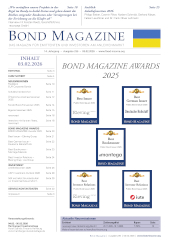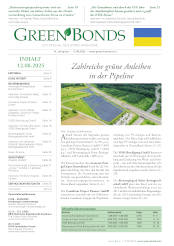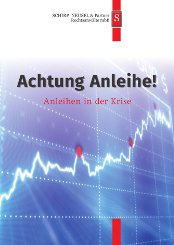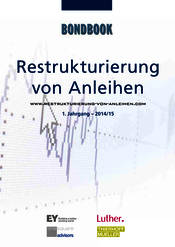Fitch Ratings says that whilst it anticipates BP plc (BP, 'AA+'/Stable/'F1+') will be negatively impacted by the containment and clean-up costs associated with the oil spill in the Gulf of Mexico, it is mindful that insurance coverage will likely cover the majority of these costs, limiting the cash outlay and potential related rating pressure for BP.
Additionally, it is currently too early to quantify other potential costs and liabilities, and as a result, the ultimate financial impact on BP will depend on how the environmental and economic impact develops when the spill reaches land, given its close proximity to the US Gulf Coast.
"Fitch estimates that containment and clean-up costs could be as much as two to three billion US dollars once the leak reaches land, and potentially more the longer it takes to arrest the flow of oil into the Gulf," says Jeffrey Woodruff, Senior Director in Fitch's Energy Team in London.
Yesterday, US President Obama said that the US government is not in a position to assist with the cost of the containment and clean-up, despite having deployed the US military to the area to contain the rapidly moving oil spill. The president stated that the responsibility for bearing the cost will ultimately be BP's, and Fitch anticipates the US government will attempt to reclaim its costs from this operation from BP.
Fitch notes that there are historical precedents for assessing the potential impact of this incident. In the case of the 1989 Exxon Valdez spill, around 250,000 barrels of oil were spilled into Prince William Sound, Alaska, with clean-up costs estimated to have been approximately USD 2bn. Exxon ('AAA'/Stable/'F1+') was eventually found liable for actual damages of around USD 287 million and compensatory damages of around USD 500 million, following a series of appeals spanning nearly 20 years that began with a judgement of punitive damages of USD5 bn. The final liability reduction was partly due to a US Supreme Court ruling passed in 2003 imposing limits on punitive damages.
"The Exxon Valdez spill was relatively small in comparison with other accidents around the world, but due to its location in a relatively enclosed area, the environmental impact of the spill and the costs associated with its clean-up were large," added Woodruff.
The current oil spill in the Gulf of Mexico has yet to be contained, and the total amount of oil lost cannot yet be quantified, but estimates are that the leak is around 5,000 barrels per day in addition to the amount of oil already on the water's surface. Assuming the leak is worse than the Exxon Valdez accident, as environmentalists are now claiming, Fitch estimates around 300 - 500 thousand barrels of oil could now be in the Gulf. If it takes an additional 60 to 90 days to drill a relief well to completely stop the leak, an additional 300 - 450 thousand barrels could be lost, resulting in a total spill of about 1.0 million barrels. This is on par with the M/T Haven leak near Genoa, Italy in 1991 and the Odyssey leak off the Canadian east-coast in 1988, according to a study conducted by CNBC using data from the National Oceanic and Atmospheric Administration and The Mariner Group.
Fitch will take appropriate rating action if this eventually proves to be necessary as a result of significant increases to environmental or litigation provisions for BP over the course of 2010. At the same time though the agency notes that actual cash outflows related to the incident are unlikely to materialise in the near-to-medium term, limiting the scope for negative rating action over a three-to-five year horizon.














